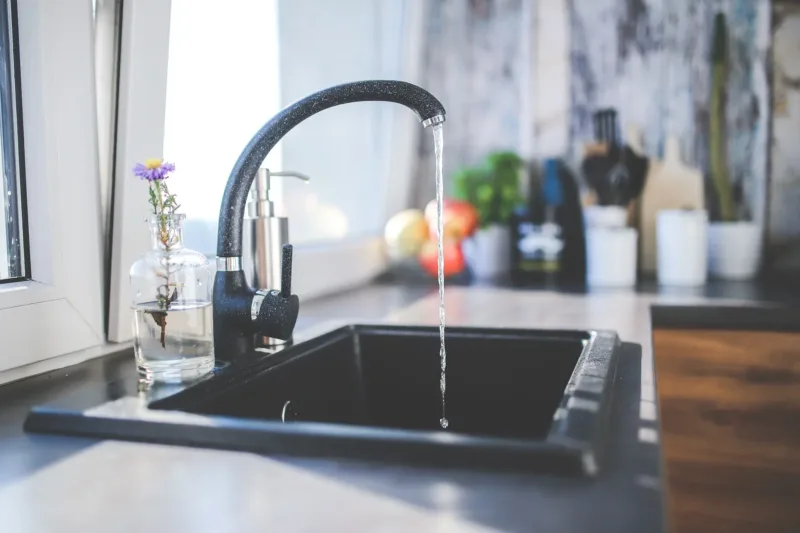Why Hot Water Runs Out After 10 Mins

A few minutes into your nice, warm, and relaxing shower, you feel the water turning cooler. By the time 10 mins are up, you are completely out of hot water. There goes your dream of letting the hot water soothe your sore and tense muscles. It’s like a splash of cold reality. Sadly, for many of you, it might seem like an everyday occurrence. For others, it might be something you would want to prevent. No matter which category you fall in, you would not wish to run out of hot water when you want it the most.
Have you ever wondered why your hot water runs out after 10 mins while earlier it used to last longer? The truth of the matter is that there are just two plausible causes of it.
1. Increased consumption of hot water.
2. Something is wrong with the water heater.
Increased Consumption Of Hot Water
Hot water is used not just for bathing, but also for washing clothes and dishes. We tend to use it in the bathroom sink for shaving, brushing, washing face, etc. In addition to that, your family size may have increased, thereby increasing the hot water consumption.
What we are trying to say is that there is a high possibility that you have outgrown your current water heater capacity. What you need to do is take stock of how much hot water you are consuming daily and the capacity and efficiency of the water heater to fulfil that demand. If you think that the consumption is more than what the heater tank can hold –
1. You need to upgrade to a water heater with a bigger tank capacity.
2. Refrain from wasting and unnecessarily using hot water.
Something Wrong With The Water Heater
Your water heater is a piece of machinery built of various parts and components. The possibility of it breaking down cannot be discarded. So, what are those things that can go wrong with the water heater such that hot water runs out after 10 mins?
1. Sediment Buildup – Mixed in water are solid particles of minerals, sand, and other debris. Though they are very small in size, over a period of time, they tend to accumulate and form a layer. The thicker the layer, the more space of the tank it occupies and lesser becomes the capacity to hold water. Not only that but sediment buildup also decreases the efficiency of the water heater. It does not heat the water as much as it used to earlier.
The Solution – Make sure that there is a filter in your water heater to catch all impurities. A good water filter will only capture those substances which harm the heater. After that, flush your water heater. In order to flush it, you will first have to empty the tank and thoroughly clean it with fresh water. You can follow the heater manufacturers guide and do the job yourself, or you can call your local plumbing service to do the job for you.
2. Faulty Thermostat – The thermostat mounted on the wall, which controls the temperature of your home isn’t the only thermostat that you need to worry about. Your water heater also has one. Just like your AC thermostat this thermostat too can develop faults.
The Solution – Before doing anything else try resetting the thermostat of your water heater. If that does not work, increase its temperature, for all you know it was the temperature which was set incorrectly. However, if neither of these two tricks works, you might want to call your plumber because your thermostat might need to be replaced.
3. Worn Out Parts – As mentioned at the beginning of this section, your water heater consists of many parts. As it ages, the parts become worn out or get damaged due to constant use. The most common part that gets damaged is the “Dip Tube”. When it gets worn down, it leads to the mixing of cold and hot water. So, you feel as if the hot water runs out after 10 mins.
The Solution – A damaged dip tube has to be replaced. There is no other solution. However, if your water heater is more than 10 years old, it’s probably time to replace it. In an old water heater, sooner or later other parts will also start going bad. So, instead of replacing each damaged part, it’s more economical to buy a new water heater.
4. Heating Element Burned Out – Every water heater has elements which heat up to make the water hot. Constant use can burn these elements. When that happens, water does not heat properly.
The Solution – The only solution to this problem is to ask your plumber to replace the heating elements. Ideally, heating element spoils only in old heaters. If your new heater has this problem, it needs to be checked out.
5. Leaks – Leaks in the tank of the heater as well as the pipeline can also result in less hot water. Usually, leaks would occur due to corrosion or pipes bursting when they freeze. In either case, all the hot water does not reach inside the house for your consumption. Some of it gets wasted as it flows out of the cracks and leaks.
The Solution – You need to find the points of leaks and seal them. If needed, change the damaged part completely. Depending on how comfortable you are handling this job yourself, either you can do it or ask a professional plumber to do it for you.
In The End
Just like your air conditioner , your water heater also requires maintenance. It works day in and day out to provide hot water for you and your family. Taking care of it is essential. If, in spite of regular maintenance , you are facing hot water scarcity, its time to call in the professionals. They are the best judge and will give you apt advice. At your end, see to it that there is no wastage of water. It is a life-saving commodity and should be handled with care.












